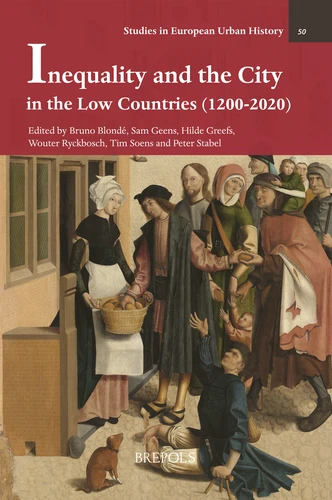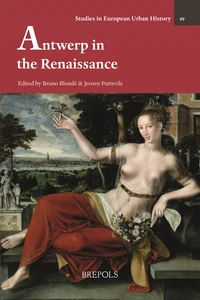Inequality and the City in the Low Countries (1200 - 2020)
Par : , , , ,Formats :
- Paiement en ligne :
- Livraison à domicile ou en point Mondial Relay indisponible
- Retrait Click and Collect en magasin gratuit
- Nombre de pages409
- PrésentationRelié
- Poids1.02 kg
- Dimensions17,8 cm × 25,4 cm × 0,0 cm
- ISBN978-2-503-58868-1
- EAN9782503588681
- Date de parution06/10/2020
- CollectionStudies in European Urban Hist
- ÉditeurBrepols
Résumé
Social inequality is one of the most pressing global challenges at the start of the 21st century. Meanwhile, across the globe at least half of the world's population lives in urban agglomerations, and urbanisation is still expanding. This book engages with the complex interplay between urbanisation and inequality. In doing so it concentrates on the Low Countries, one of the oldest and most urbanised societies of Europe.
It questions whether the historic poly-nuclear and decentralised urban system of the Low Countries contributed to specific outcomes in social inequality. In doing so, the authors look beyond the most commonly used perspective of economic inequality. They instead expand our knowledge by exploring social inequality from a multidimensional perspective. This book includes essays and case-studies on cultural inequalities, the relationship between social and consumption inequality, the politics of (in)equality, the impact of shocks and crises, as well as the complex social relationships across the urban network and between town and countryside.
It questions whether the historic poly-nuclear and decentralised urban system of the Low Countries contributed to specific outcomes in social inequality. In doing so, the authors look beyond the most commonly used perspective of economic inequality. They instead expand our knowledge by exploring social inequality from a multidimensional perspective. This book includes essays and case-studies on cultural inequalities, the relationship between social and consumption inequality, the politics of (in)equality, the impact of shocks and crises, as well as the complex social relationships across the urban network and between town and countryside.
Social inequality is one of the most pressing global challenges at the start of the 21st century. Meanwhile, across the globe at least half of the world's population lives in urban agglomerations, and urbanisation is still expanding. This book engages with the complex interplay between urbanisation and inequality. In doing so it concentrates on the Low Countries, one of the oldest and most urbanised societies of Europe.
It questions whether the historic poly-nuclear and decentralised urban system of the Low Countries contributed to specific outcomes in social inequality. In doing so, the authors look beyond the most commonly used perspective of economic inequality. They instead expand our knowledge by exploring social inequality from a multidimensional perspective. This book includes essays and case-studies on cultural inequalities, the relationship between social and consumption inequality, the politics of (in)equality, the impact of shocks and crises, as well as the complex social relationships across the urban network and between town and countryside.
It questions whether the historic poly-nuclear and decentralised urban system of the Low Countries contributed to specific outcomes in social inequality. In doing so, the authors look beyond the most commonly used perspective of economic inequality. They instead expand our knowledge by exploring social inequality from a multidimensional perspective. This book includes essays and case-studies on cultural inequalities, the relationship between social and consumption inequality, the politics of (in)equality, the impact of shocks and crises, as well as the complex social relationships across the urban network and between town and countryside.



